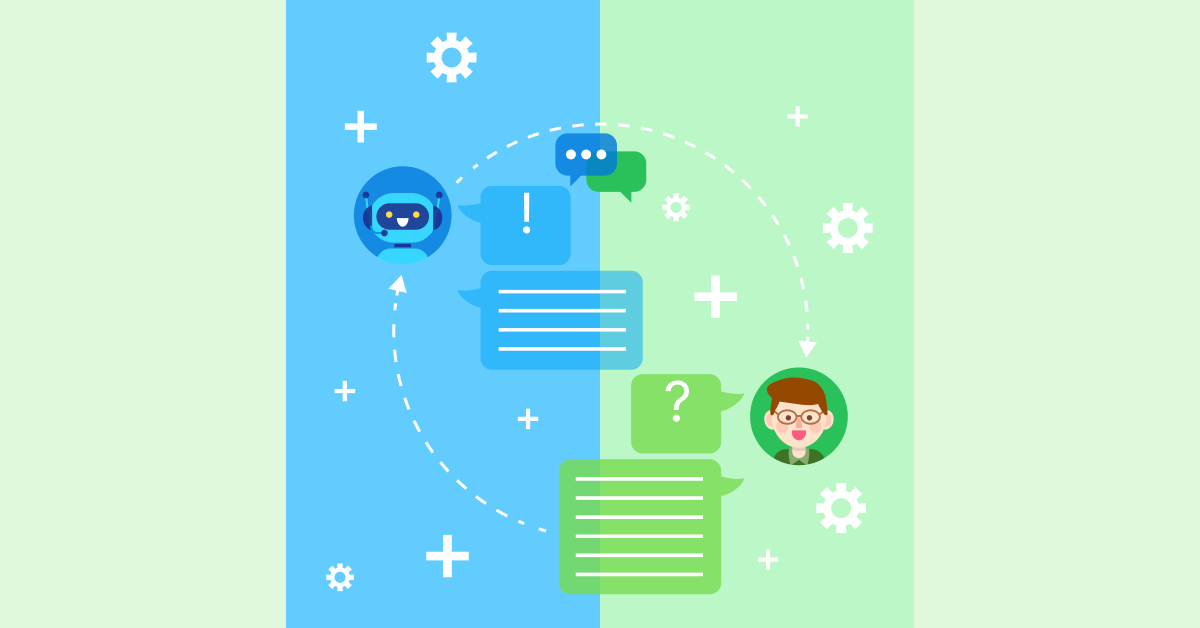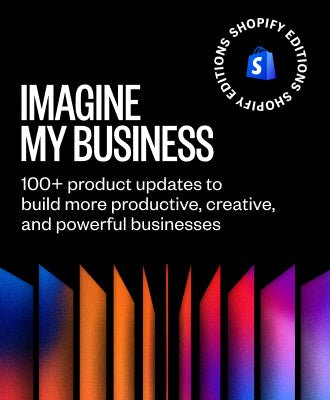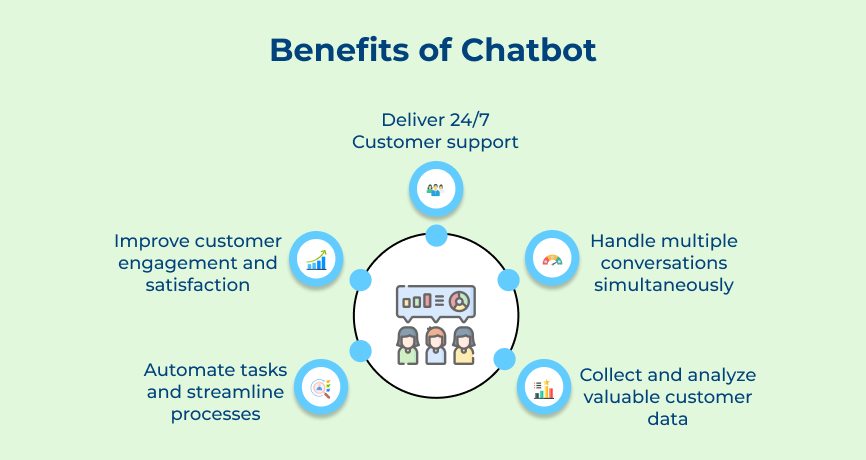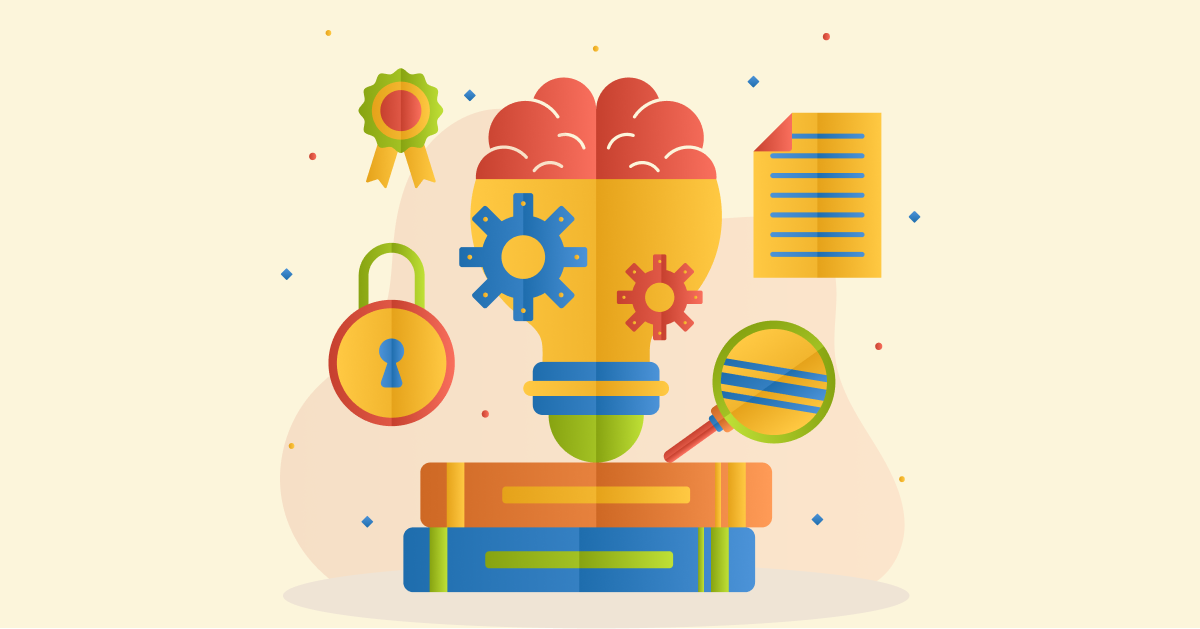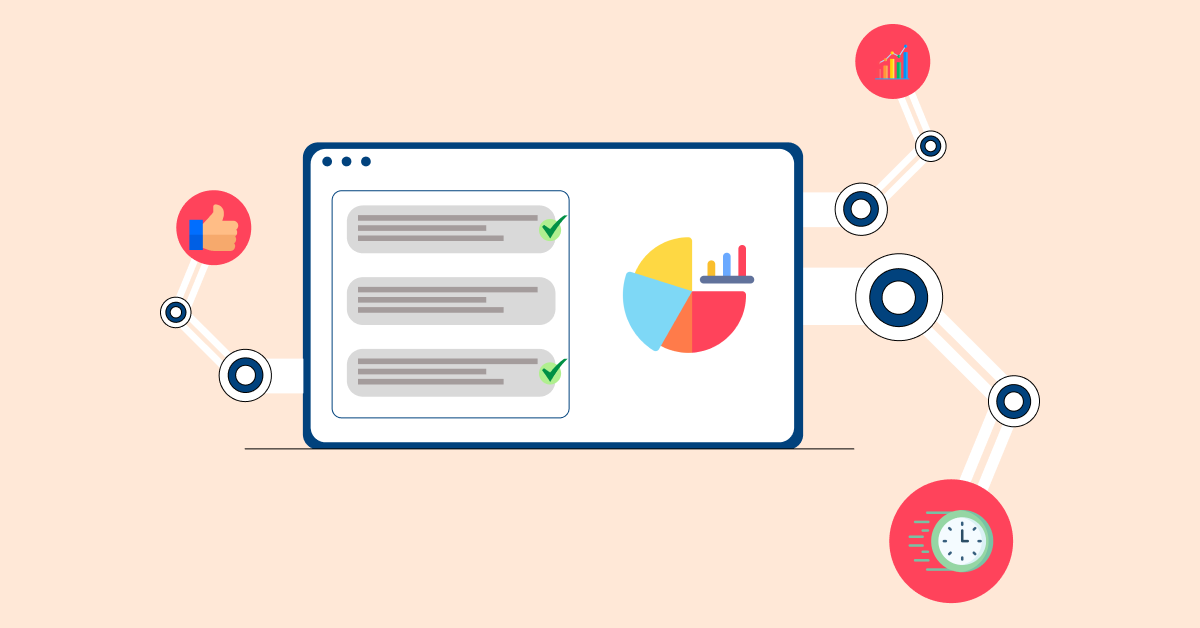1. Customer Service Bot Handles Support Tickets
A customer service chatbot automates the initial response to customer inquiries and support requests. The automation is essential because it provides instant 24/7 support while reducing the workload on human agents. The bot helps businesses handle high query volumes efficiently and maintain consistent service quality.
The bot’s AI-powered analysis system examines incoming messages to understand customer intent and urgency. It matches keywords and context patterns against a comprehensive knowledge base to provide relevant solutions instantly. When it detects complex issues beyond its capability the bot smoothly transitions these conversations to appropriate human agents.
Best practices:
- Design clear escalation paths with specific triggers to determine when human intervention is needed. The handoff should feel natural and preserve the conversation context.
- Maintain an updated knowledge base with regular reviews of customer interactions to identify gaps in automated responses and new common issues.
2. Sales Assistant Guides Product Purchase Journey
A sales assistant chatbot serves as the first point of contact for potential customers exploring products or services. Automation is paramount because it provides immediate personalized guidance through the sales funnel while collecting valuable customer data for more effective targeting.
The bot engages customers through a structured conversation flow asking specific questions about their needs, preferences and budget constraints. Based on these responses it filters through the product catalog to suggest the most relevant options. The bot maintains engagement by sending timely follow-up messages with additional product information and addressing common purchase concerns.
Best practices:
- Create detailed buyer personas and map out specific conversation flows for each ensuring the bot asks relevant questions based on customer segments.
- Implement a scoring system to accurately identify qualified leads based on engagement metrics and responses to key qualifying questions.
3. Healthcare Bot Schedules Medical Appointments
A healthcare scheduling chatbot streamlines the often complex process of booking medical appointments. Automation addresses a critical need in healthcare facilities by reducing administrative burdens. It ensures there’s efficient patient scheduling while maintaining compliance with healthcare regulations and privacy requirements.
The bot starts by understanding patient availability and matching it with healthcare providers’ schedules through an integrated calendar system. It considers factors like appointment duration specialty requirements and provider preferences to suggest optimal time slots. The system collects essential health information through structured questions ensuring providers have the necessary context before visits.
Best practices:
- Implement robust security measures and ensure HIPAA compliance throughout all interactions while maintaining clear documentation of all data handling processes.
- Design conversation flows that can handle medical urgency appropriately with clear protocols for routing emergency cases to immediate human assistance.
4. Educational Bot Teaches New Language Skills
An educational language chatbot serves as a personal language tutor available at any time. The technology addresses the need for consistent practice and immediate feedback in language learning providing students with a safe environment to make mistakes.
The bot maintains engagement through interactive exercises providing instant feedback on pronunciation grammar and word usage. It employs spaced repetition algorithms to reintroduce challenging concepts at strategic intervals maximizing retention. The system tracks progress over time adjusting the learning path based on performance patterns.
Best practices:
- Incorporate natural language processing that can understand and correct common mistakes while providing explanations that help students understand the reasoning behind corrections.
- Design adaptive learning algorithms that balance new content introduction with review sessions based on individual learning curves and retention patterns.
5. Finance Bot Manages Personal Banking Tasks
The chatbot example revolutionizes personal banking by providing an intelligent conversational interface for financial management. The automation addresses the growing demand for instant banking access while maintaining security and providing personalized financial guidance through natural conversations.
The bot securely processes day-to-day banking tasks through simple text commands. Users can check balances, transfer funds or pay bills using conversational language rather than navigating complex menus. The system employs multi-factor authentication and encryption to ensure transaction security while maintaining a smooth user experience.
Best practices:
- Implement rigorous security protocols including continuous session monitoring and automatic timeout features while maintaining an intuitive user experience.
- Design conversation flows that can handle financial stress situations sensitively with clear escalation paths to human financial advisors when needed.
6. HR Bot Streamlines Employee Onboarding Process
The innovative chatbot example transforms the traditional onboarding experience into an engaging interactive journey. The automation addresses the challenge of consistent and efficient onboarding while ensuring new employees feel supported throughout their initial days with the organization.
Working across departments the chatbot coordinates various onboarding activities. It manages equipment requests, system access setups and training schedules while tracking completion status. The bot sends timely reminders to relevant team members and provides new hires with progress updates maintaining transparency throughout the process.
Best practices:
- Create detailed documentation of all automated processes while maintaining flexibility to accommodate unique situations or special employee requirements.
- Design the bot to recognize and respond appropriately to cultural nuances while maintaining consistent communication standards across different departments.
7. Restaurant Bot Takes Food Delivery Orders
A restaurant ordering system needs robust automation to handle high-volume orders efficiently while maintaining accuracy and customer satisfaction. The chatbot example transforms the traditional ordering process into a seamless digital experience that reduces errors and improves service speed.
The integration with kitchen management systems creates a streamlined workflow from order to delivery. The bot processes payments and calculates accurate delivery times based on current kitchen load and driver availability. It keeps customers informed about their order status through automated updates eliminating uncertainty and reducing support calls.
Best practices:
- Design clear fallback options for when items become unavailable ensuring customers can easily select alternatives without starting over.
- Implement smart order queuing that considers preparation times for different dishes to optimize kitchen workflow and delivery timing.
8. Travel Bot Books Flight Reservations Efficiently
The complexity of flight bookings and frequent schedule changes demands intelligent automation for efficient travel planning. A sophisticated booking system helps travelers navigate countless flight options while managing important travel details with precision.
During travel disruptions, the bot becomes an essential support tool. It monitors flight status proactively suggests alternative routes and handles rebooking requests. The system keeps travelers informed about gate changes, delays and connection impacts while providing relevant information about airport services and lounges.
Best practices:
- Create comprehensive pre-travel checklists that include visa requirements, travel documentation and health protocols for different destinations.
- Design flexible rebooking protocols that can quickly adapt to various disruption scenarios while maintaining fare rules and passenger preferences.
9. IT Helpdesk Bot Resolves Technical Issues
The need for immediate technical support in the modern digital workplace makes IT helpdesk chatbots essential. The automation provides instant assistance for common technical issues while efficiently managing the flow of more complex problems to specialized support teams.
The bot uses a structured troubleshooting approach starting with common solutions. It guides users through basic diagnostic steps like checking connections, clearing caches or restarting applications. The conversational interface helps reduce user frustration while systematically identifying the root cause.
Best practices:
- Build comprehensive error message recognition patterns ensuring the bot can identify and respond to common system errors without multiple user clarifications.
- Implement secure remote diagnostic capabilities while maintaining clear user consent protocols for any system-level actions.
Real-Life Chatbot Examples
Let’s go through the compelling examples of successful chatbot deployments across various industries, showcasing how they not only improve customer experience but also facilitate business growth.
1. Apple
Apple’s customer service chatbot is a prime example of how artificial intelligence can be harnessed to improve customer interactions. The chatbot plays a crucial role in handling basic customer queries and providing instant responses, without the need for human intervention. It offers a quick and efficient way for customers to find solutions to their problems.
Apple’s customer service chatbot features include its ability to respond to natural language queries. Its comprehensive knowledge base covers various solutions and its seamless integration with other support channels like phone or email.
2. Bank of America’s Erica
Erica is a virtual assistant that provides personalized financial guidance to the bank’s customers. The key features of Erica include its ability to provide balance updates, transaction history and transfer funds between accounts. Erica is integrated into the Bank of America mobile app, making it easily accessible to users on the go.
Customers expect quick and efficient service. Erica delivers just that, allowing users to receive real-time answers and assistance without the need for human interaction. It not only saves resources for the bank but also enhances the customer experience, leading to increased satisfaction.
3. Domino’s
Domino’s has one of the AI chatbot examples that is highly spoken of amongst the masses. It serves as an automated ordering system, enabling customers to place their pizza orders through various messaging applications conveniently. Key features of Domino’s AI chatbot include personalized recommendations, tracking orders in real-time and providing updates on delivery status.
The Domino’s chatbot can understand and respond to complex requests, making the user experience enjoyable. Leveraging AI has enabled Domino’s to tap into the growing trend of conversational experience, where consumers prefer to engage with brands through messaging platforms rather than traditional methods.
4. Amazon
Amazon is an ecommerce platform that allows customers to purchase a wide range of products with just a few clicks. The thing that sets it apart from other online retailers is its integration of chatbot technology. The key feature of Amazon’s chatbot is its ability to provide personalized recommendations and assistance to customers.
Amazon’s chatbot is very effective at understanding customer inquiries and guiding them towards their respective information. The importance of Amazon’s chatbot lies in its ability to enhance customer engagement and satisfaction.
5. Mountain Dew’s DEWBot
Mountain Dew’s DEWBot is one such marketing chatbot that has caught the attention of many. DEWBot is an AI-powered chatbot created by Mountain Dew to engage with its audience in a fun and interactive way. It is built to understand and respond to user queries conversationally, providing relevant information about the brand or its products.
Key features of DEWBot include its ability to provide recommendations based on user preferences, engage in witty banter and deliver exclusive content. Users can chat with DEWBot on various platforms like Facebook Messenger or through the Mountain Dew website. Offering tailored recommendations and entertaining interactions has allowed Mountain Dew to connect with its target audience on a deeper level.
6. Wall Street Journal’s Chatbot
The Wall Street Journal’s chatbot is a sophisticated AI-powered virtual assistant designed to enhance the user experience for readers of the renowned newspaper. It operates within messaging platforms, providing real-time updates, customized news alerts and curated content tailored to individual preferences.
Key features of the marketing chatbot include intelligent news curation, interactive conversational capabilities and personalized recommendations. The integration of natural language processing and machine learning technologies enables the chatbot to deliver relevant content promptly.
Transform your Business with Intelligent Chatbot Solutions
Intelligent chatbot solutions have the power to transform businesses in numerous ways. Implementing advanced chatbot platforms enables businesses to significantly improve customer service, streamline operations and increase overall efficiency. Due to the ability to handle customer inquiries, provide personalized recommendations and even process transactions, chatbots have revolutionized the way businesses interact with their customers.
The insights gained from analyzing chatbot examples will help businesses aspire to adopt a chatbot that takes their user experience to another level altogether. Investing in intelligent chatbot solutions is a wise decision for any business looking to stay competitive and achieve success.
